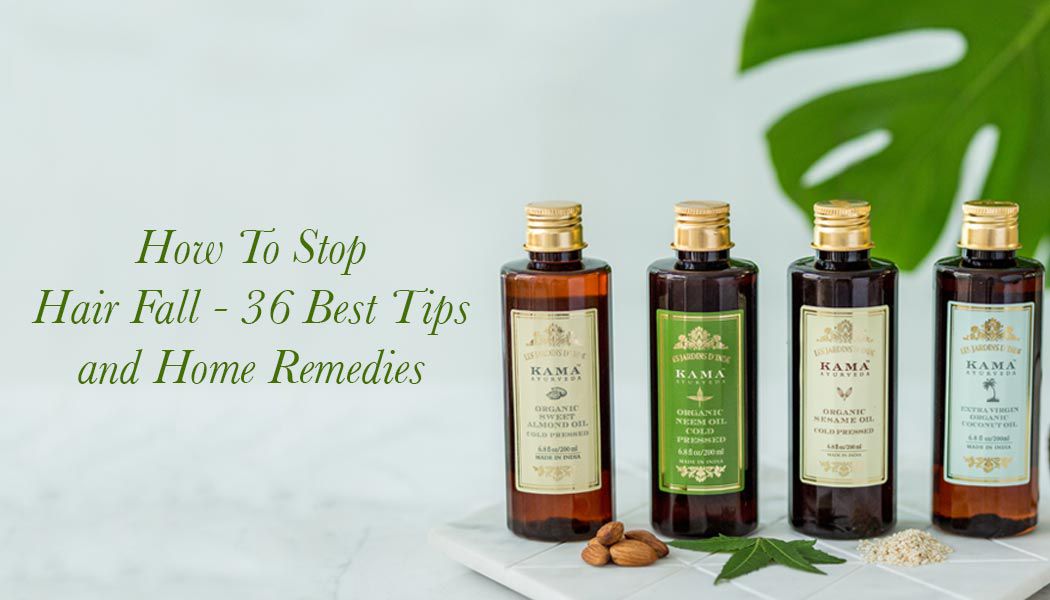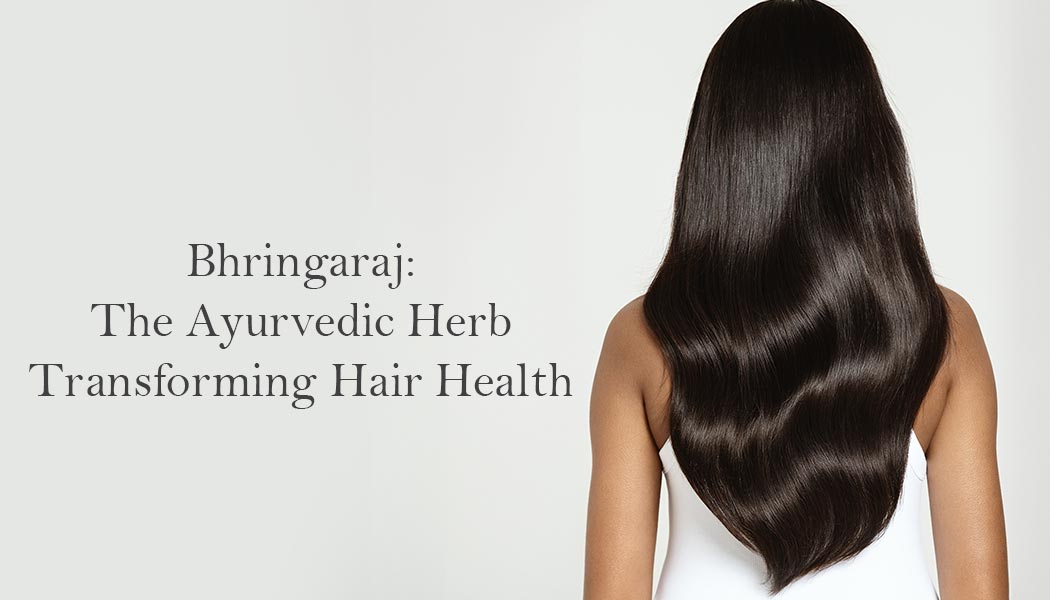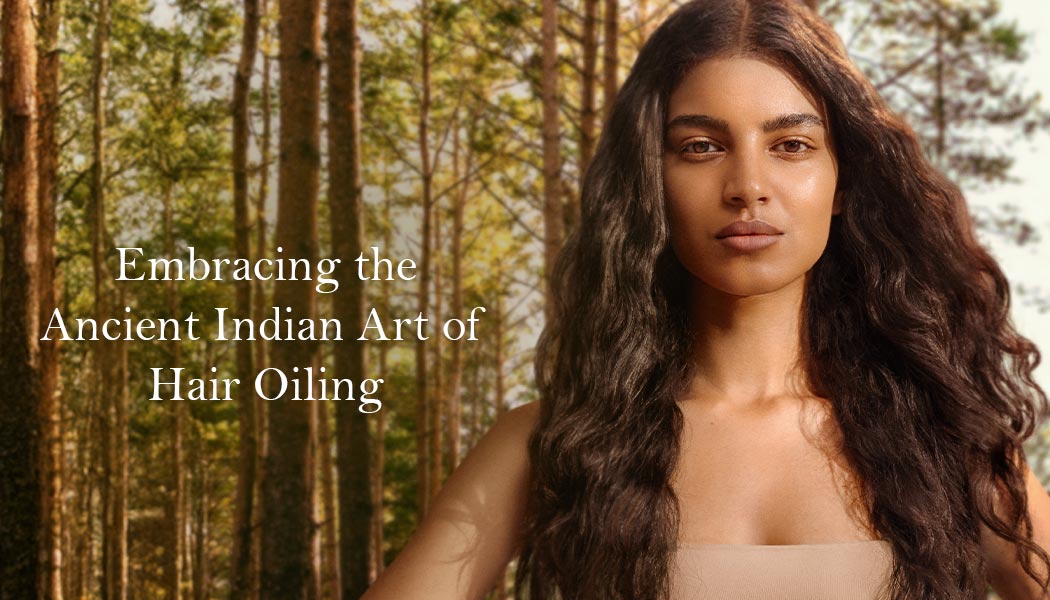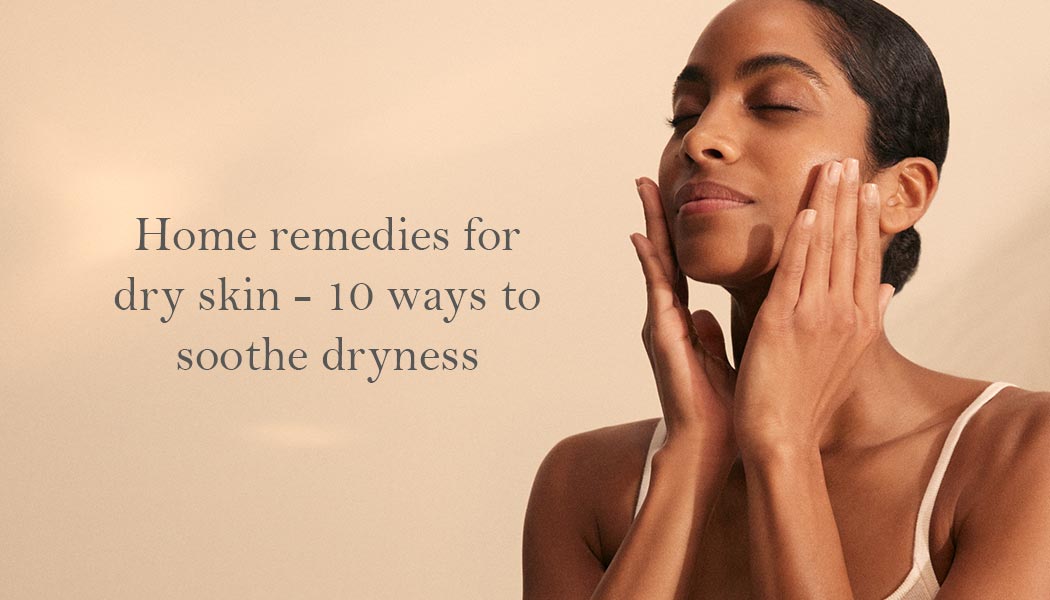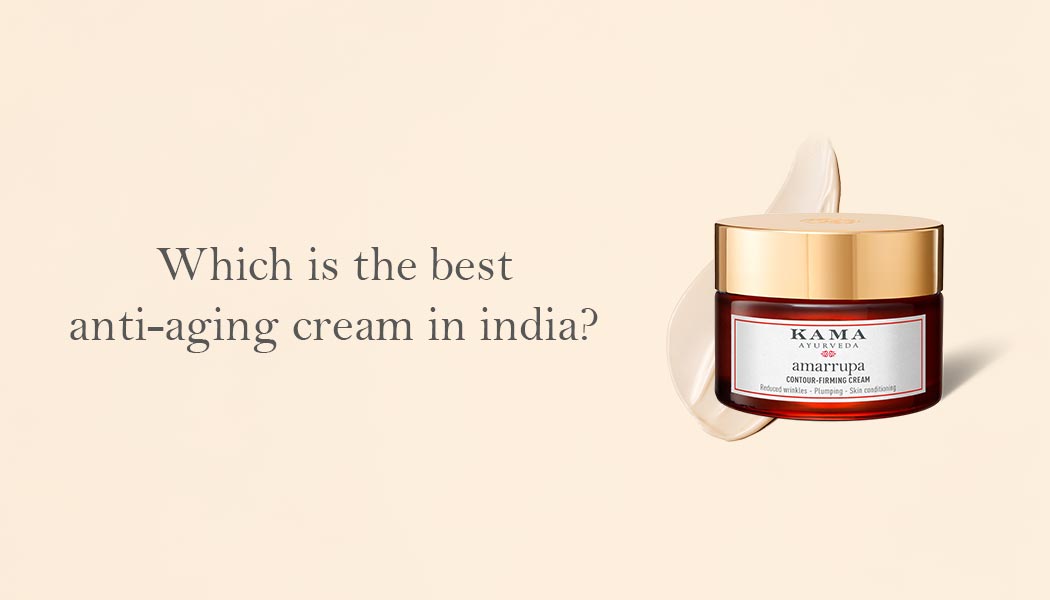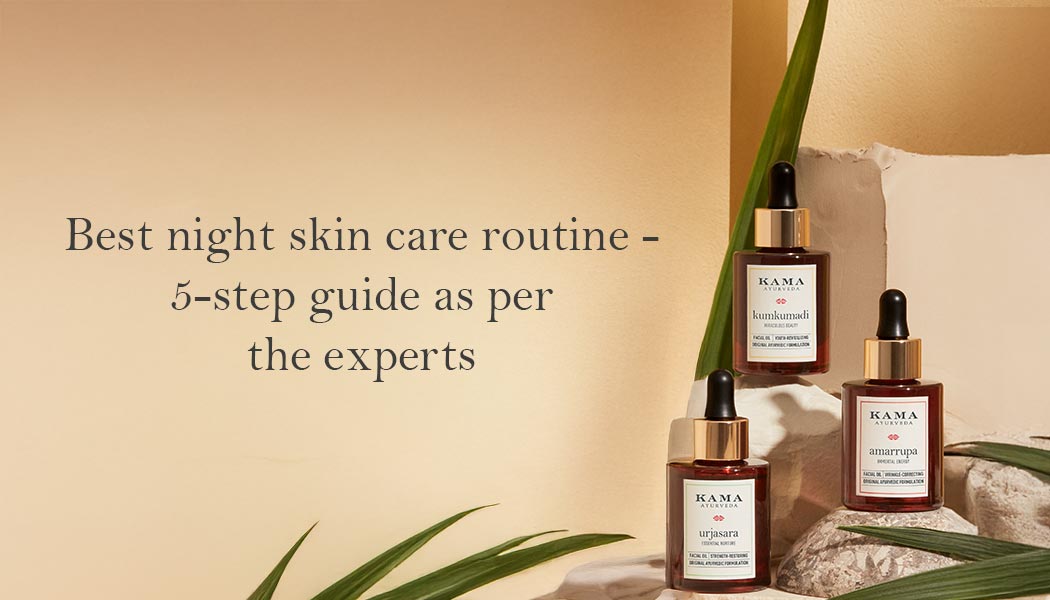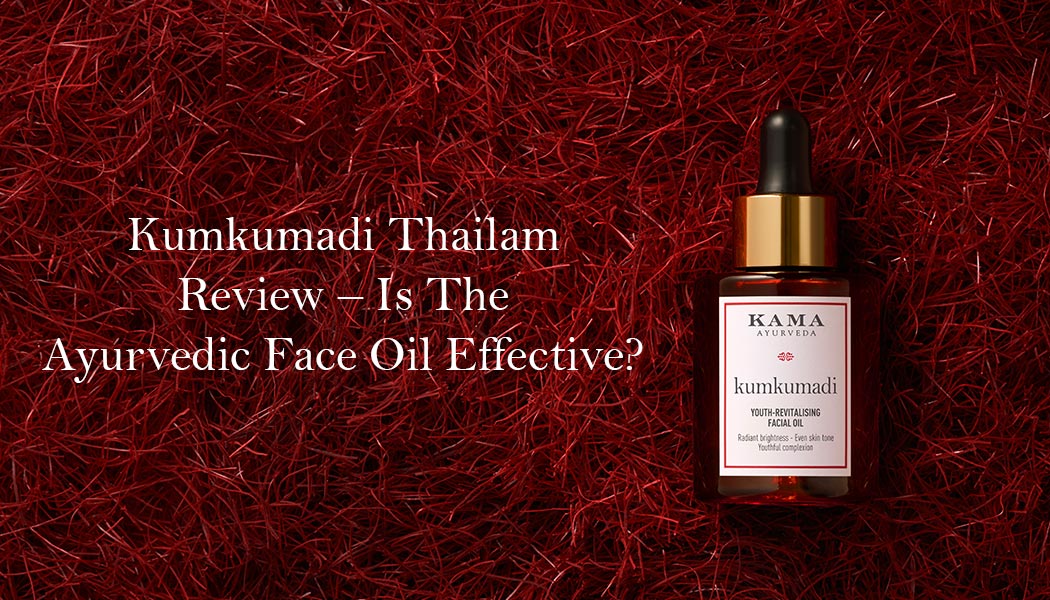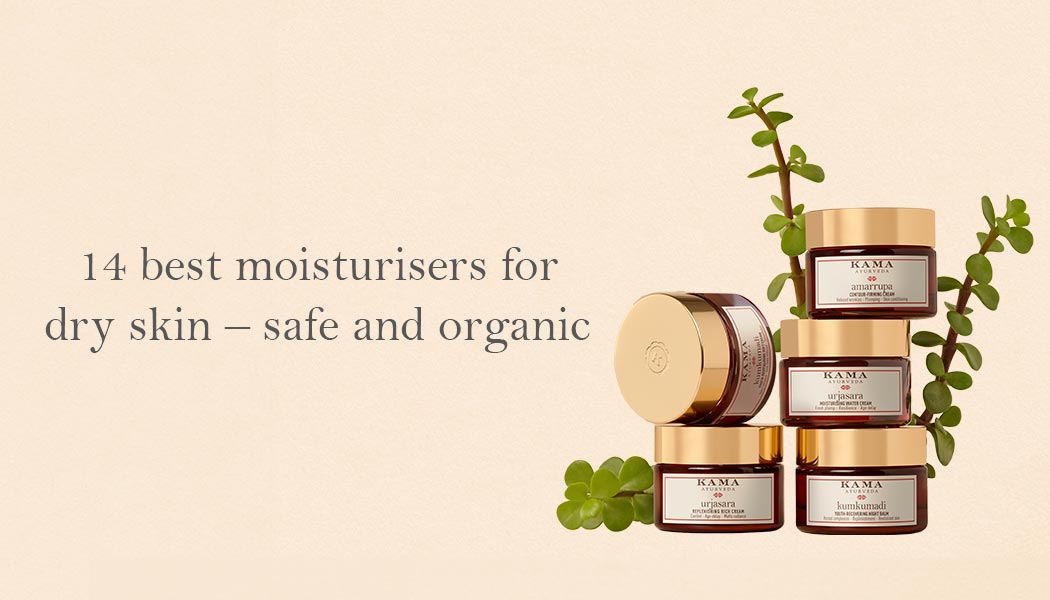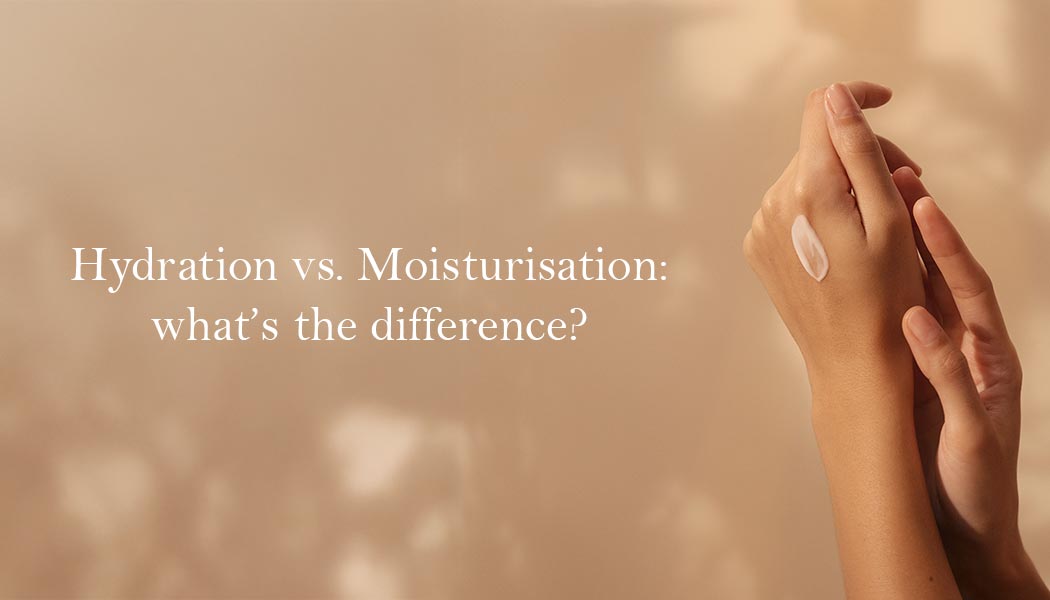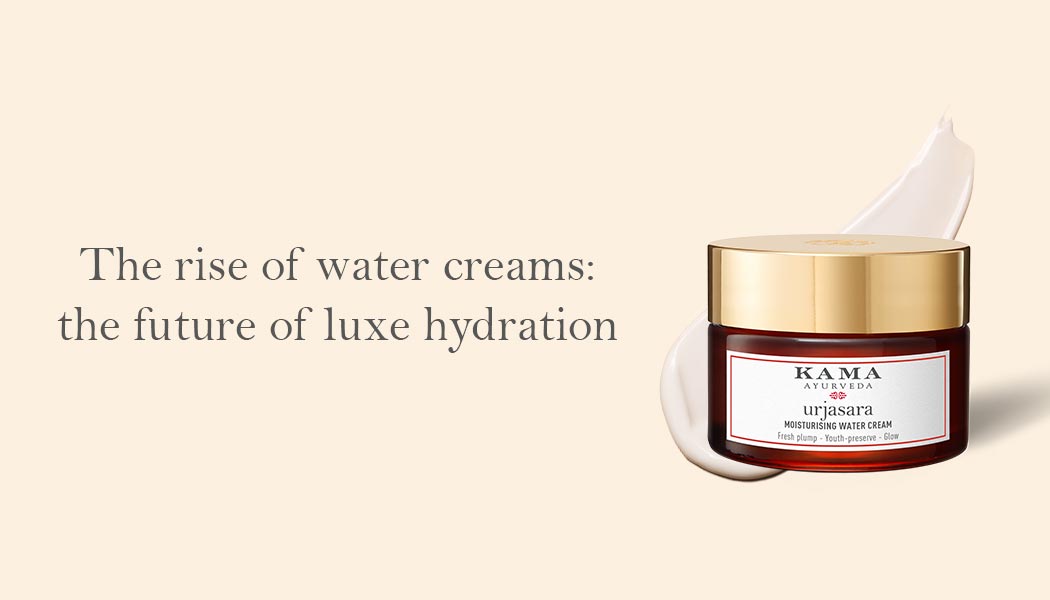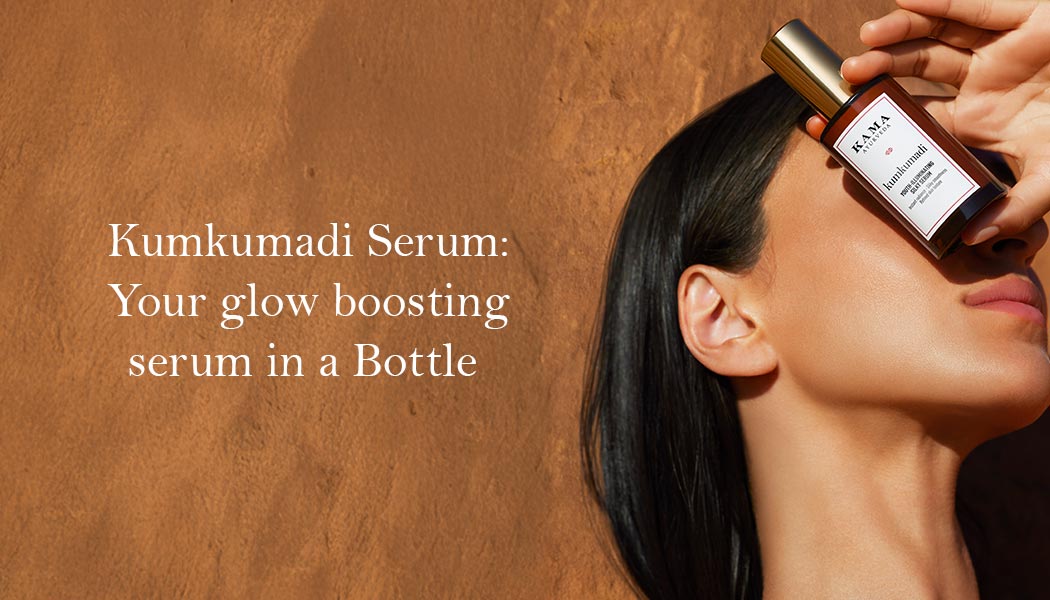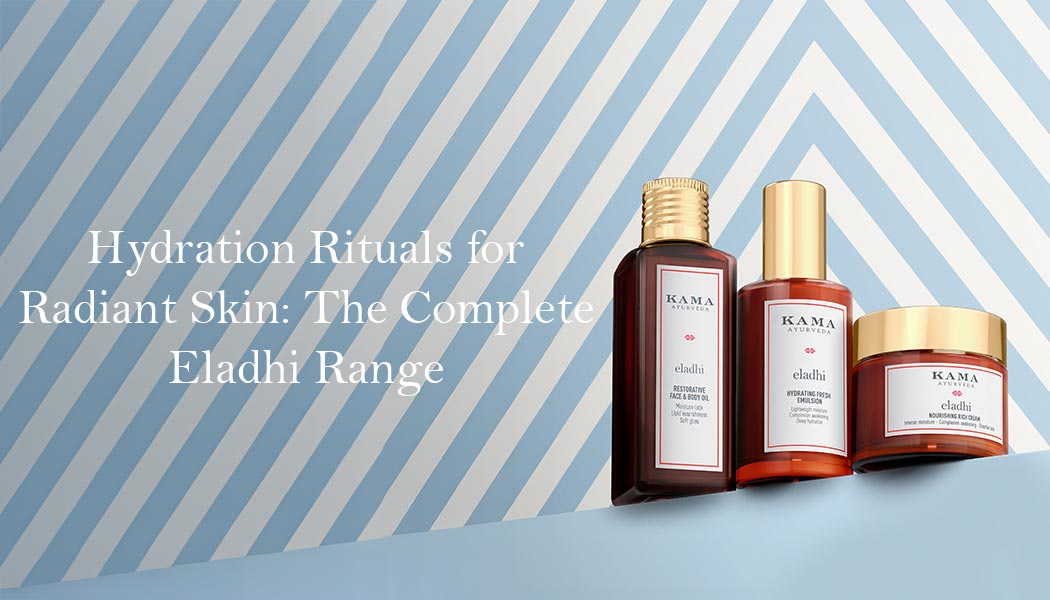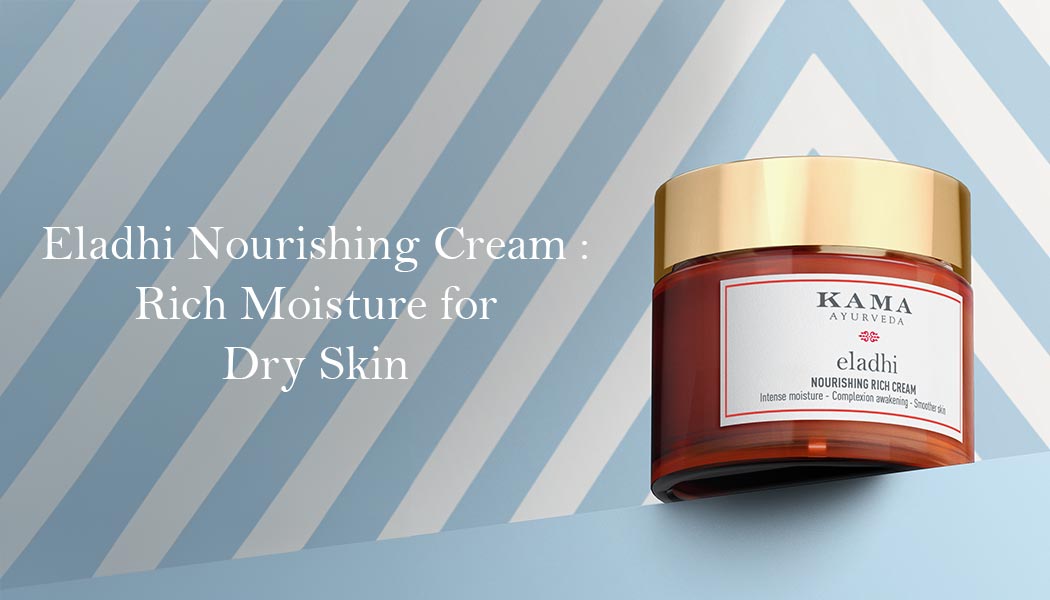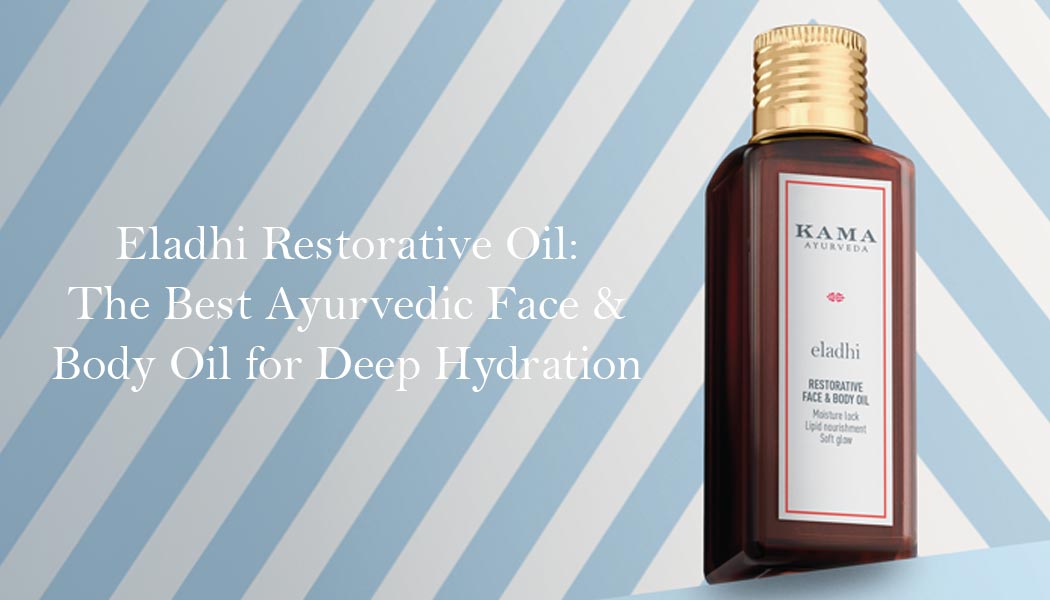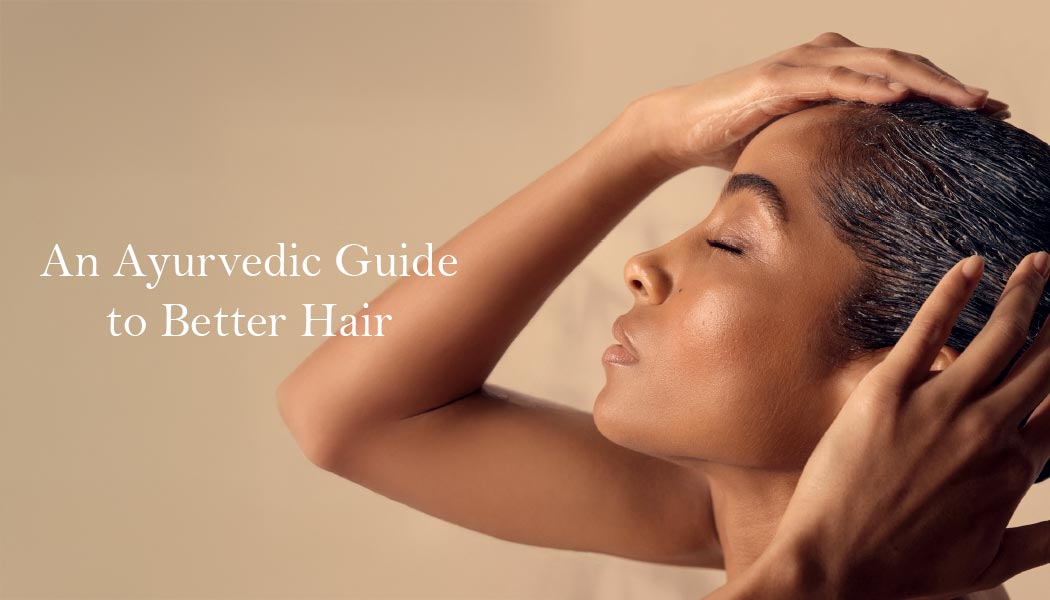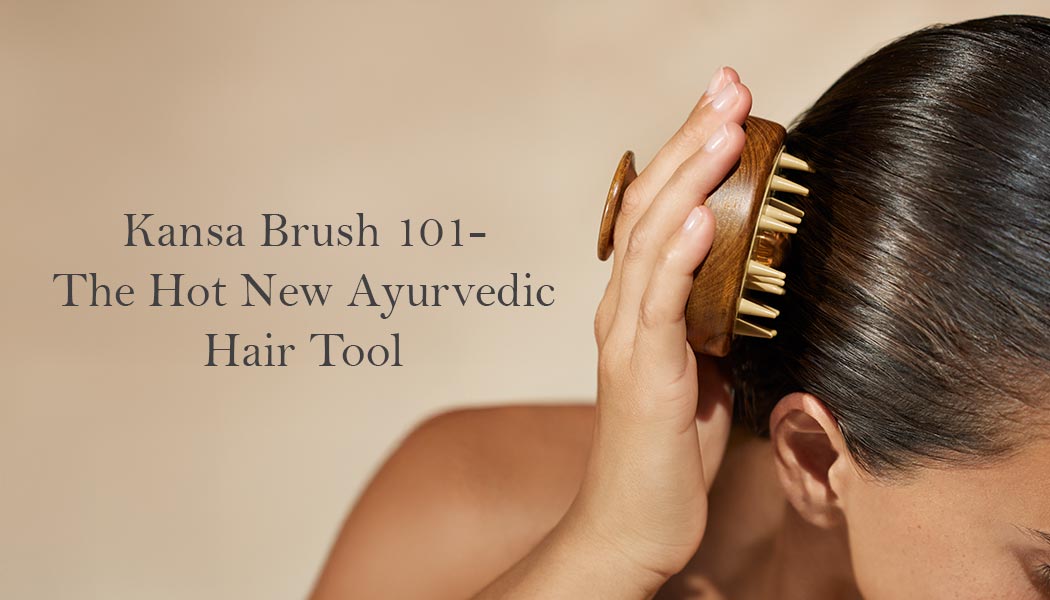- 25 March 2020
- 18 mins read
For most of us, a good hair day instantly puts us in a good mood. Such is the importance associated with the appearance of our hair. When even an occasional bad hair day can seriously put a damper on our mood, imagine how dreadful it’s to deal with your precious hair locks beginning to fall off.
Hair loss and hair thinning have become increasingly common in a majority of people these days. While for some, it’s the genes that are to blame, for others, it’s the chemicals present in their hair styling and colouring products.
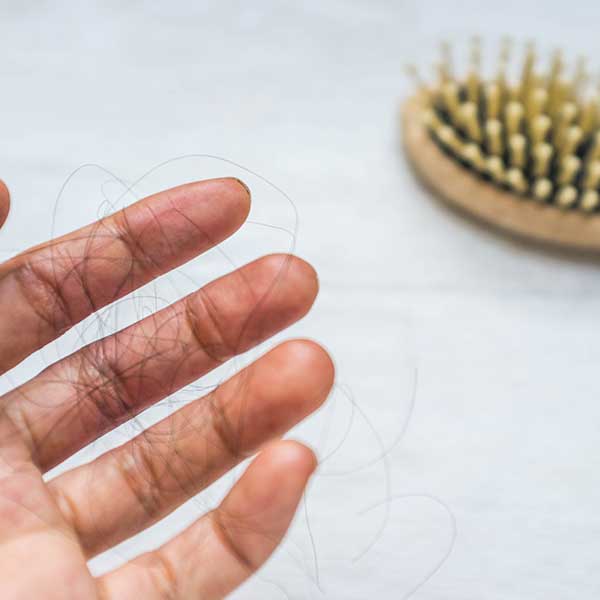
So, how do you deal with this problem and eliminate it from the root? Should you use medications? Or should you try out natural alternatives? If you are currently struggling with hair fall or hair thinning - regardless of your gender - you might find this article useful as we have compiled our best advice on managing hair loss at its early stages.
Understanding Hair Fall
On average, our scalp has 100,000 hairs, cycling through their periods of growing, resting, falling out, and regenerating. Every hair follicle on your scalp goes through a phase where it rests before growing the next strand of hair. In this stage, the hair falls out. As a result of this, it’s normal to lose up to 100 strands of hair in a day.
The problem occurs when this cycle is disrupted, or when a hair follicle is damaged. In such cases, hair may begin to fall out more quickly than it regenerates, leading to hair loss problems such as a receding hairline, hair falling out in patches, or overall thinning.
Symptoms of Hair Loss
Common symptoms of hair loss can be - hair loss in the parting of the hair in the mid-frontal area of the scalp (especially for women), for men, hair thinning on the top of the head, along with noticeable bald spots in the front are clear indications of ‘male pattern hair loss.’.
Additionally, if you find excessive hair than usual on the hairbrush after you brush your hair or more than the usual amount of hair in the drain after washing your hair, these are also signs of hair loss.
Think you’re suffering from hair loss and wondering how to stop hair fall immediately at home? Book a free online consultation with our Ayurvedic beauty experts.
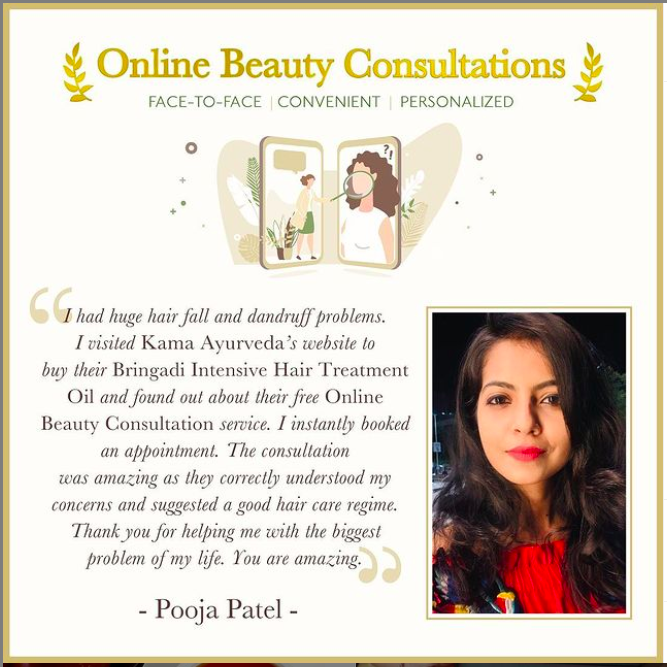
Top Hair Fall Reasons
So, why does hair loss occur? A lot of things can affect the growth of our hair, from something like nutritional deficiencies (Iron, Zinc, Vitamin D, and Protein), dandruff, and an exceptionally oily scalp - which can be corrected relatively easily.
There are some serious causes of hair loss as well, like thyroid issues, hormonal imbalances, damage caused by long term heat application and chemical treatment.
Even chronic stress can be a cause of hair fall in some individuals, and hair thinning due to the hormone fluctuations around and after pregnancy and during Menopause is a routine occurrence for women.
Hair loss can also occur as a result of how you handle your hair, though. Among women, regularly tying the hair too tightly with rubber bands, and using hair brushes which are not wide-toothed, can cause hair loss - this is also known as Traction Alopecia.
Along with old age, genetics can also play a significant role in the loss of our hair - the gene for hair loss can be inherited from the father’s side of the family, or the mother’s side of the family, or both as well.
According to Ayurveda, hair fall occurs due to an imbalance of Pitta energy in the body. Regular hair oiling and head massage with a suitable Ayurvedic oil is one of the most effective hair loss remedies. We recommend adding regular oiling with hair growth oils to your hair care regime.
The most effective hair oiling treatment to prevent hair fall is Bringadi Intensive Hair Treatment Oil, enriched with the goodness of Sesame oil, Indian Gooseberry (Amla), Bhringraj, Indigo and Balloon Vine. It’s clinically proven to reduce hair fall by 94 percent, irrespective of the hair fall reason.
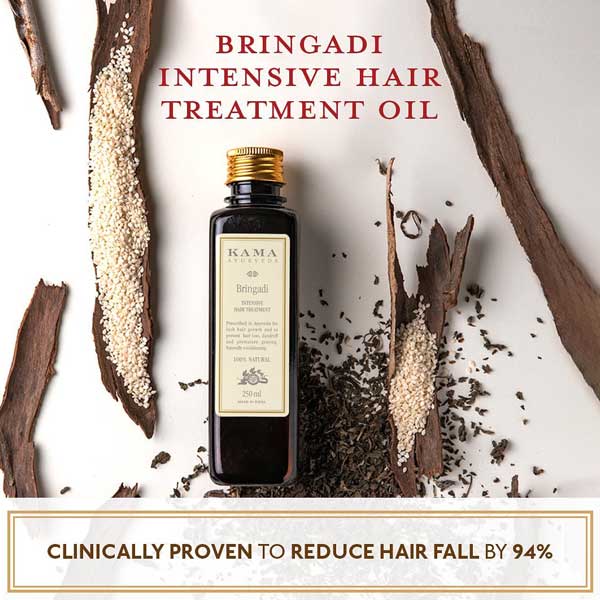
How To Control Hair Fall
We hope that reading about all these causes of hair fall has not put you in a gloomy mood! As stated previously, we bring you some of our best advice when it comes to controlling hair fall -
1. Cleansing and Conditioning Your Hair
Firstly, a lot of us - especially men - tend to use soaps for cleansing their scalp and hair, this can be very problematic for the hair and scalp health. Soaps are too harsh and stripping, as are a lot of shampoos. We must use a mild shampoo, one which will not strip our scalp of its natural oils entirely.
Also, simply washing the hair with shampoo will not do. A good conditioner should be applied on 3/4th of the hair (avoiding the scalp) every time you wash your hair. Most conditioners contain Amino acids, which help to nourish and repair the hair and reduce frizz and breakage of hair.
There is no set frequency of hair washing that we can recommend, since it depends on the individual’s hair type and how fast the scalp becomes oily after washing. However, we recommend that you do not wash your hair so frequently that it becomes dry to the point of breakage and frizz.
2. Healthy Diet and Regular Exercise To Prevent Hair Fall
We have mentioned before how nutritional deficiencies can cause hair loss, so you must eat a balanced diet! Make sure you include food items that are rich in Vitamins A, C, D and E, Zinc, B Vitamins, Iron, Biotin, Protein, and Essential Fatty Acids.
You can try adding an iron and multivitamin supplement to your diet if you feel like you are still lacking. When it comes to exercising, at least 20-30 minutes of cardio (running/ skipping rope/cycling) will help make a difference. Exercise helps in balancing out your hormones, helping those who suffer hair loss due to hormonal imbalances.
3. Avoid Harmful Treatments To Prevent Hair Fall
To keep your hair as healthy as possible, avoid any type of chemical treatments that damage the hair or scalp in form. Avoid coloring your hair with chemicals and only use natural dyes. For dying your hair chemically, bleaching is usually required, which is terrible for the health of your hair.
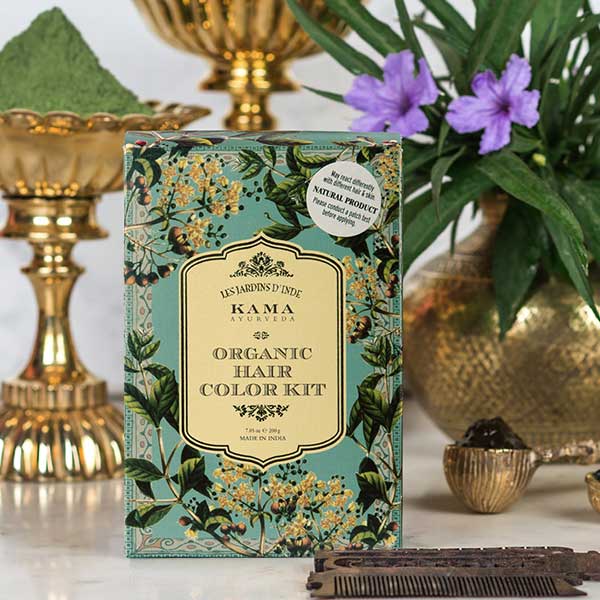
You should also avoid straightening/curling or perming your hair and avoid blow-drying your hair with the ‘Heat - on’ setting. Applying heat to the hair (especially when it is wet) can cause the hair to essentially boil up - leaving it brittle and extremely prone to breakage.
4. Indulge in Nourishing Hair Treatments
When it comes to managing hair fall, there’s no better cure than the centuries-old wisdom for providing extra nourishment to your hair! Hair Oiling is a highly recommended practice in Ayurveda.
Oiling helps lessen the amount of breakage that occurs while washing the hair. The same goes for deep conditioning hair masks or protein hair masks. Just apply them for a few hours and wash off - and voila, healthy scalp and hair!
If you do not want the oil in your hair to get into your eyes or on your face, just tie it up in a loose bun and cover it with a shower cap, and you can go about your day just fine!
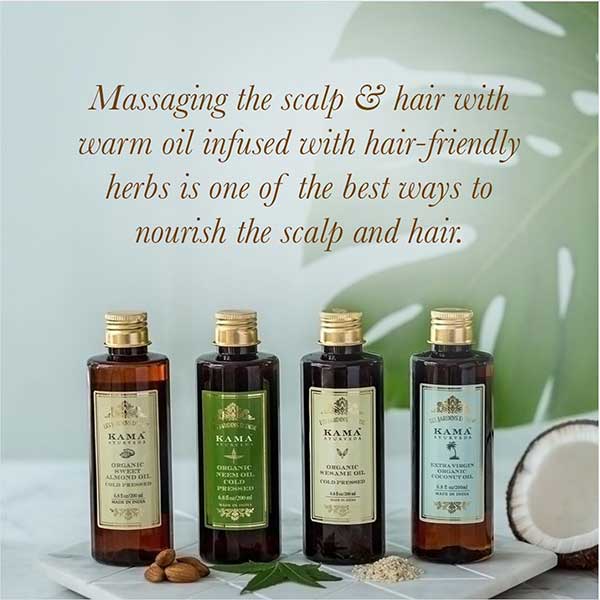
Best Hair Oils For Hair Fall
Your hair quality is the direct outcome of how you nourish it, agree? I know growing back your lost hair is not a piece of cake, but with the help of certain oils, you can stem your lost hair and give it volume and healthy sheen. Below are some of them.
1. Coconut Oil
You cannot escape knowing about the importance of coconut oil if you live in India. It is one of the most popular hair oils for growth. It is versatile as well as an excellent source for nourishing the skin. Rich in fatty acids, the oil deeply penetrates the hair follicles without evaporating. The carbohydrates, vitamins, and minerals in coconut oil also are essential for hair health.
How is coconut oil useful for hair fall? Coconut oil helps in promoting overall hair growth, making the hair soft and lustrous. It also protects the hair against heat damage, and repairs the weak and brittle hair strands. Rich in vitamin E and antioxidants, we can also use this oil as a conditioner. Coconut oil is suitable for all hair types and best suited to the ones with dull, damaged and dry hair and the ones with slow hair growth.
If you are aiming for soft hair, it is best to use it regularly over some time. You can also try mixing ingredients like curry leaves, Amla, or Brahmi to the warm oil for best results.
2. Sesame Oil
Sesame oil is one of the most popular oils used for hair growth in Ayurveda. Extracted from the sesame seeds, the oil is excellent for nourishing, conditioning, and promoting hair growth—the antimicrobial properties in sesame oil help in treating scalp infections. Sesame oil, also known as the “Symbol of Immortality” when applied regularly, provides relief from headaches, baldness, greying of hair, and hair fall.
It suits all hair types and is highly recommended for those who are looking for regrowth of lost hair and want a sleek shine. For best results, heat the oil before applying it.
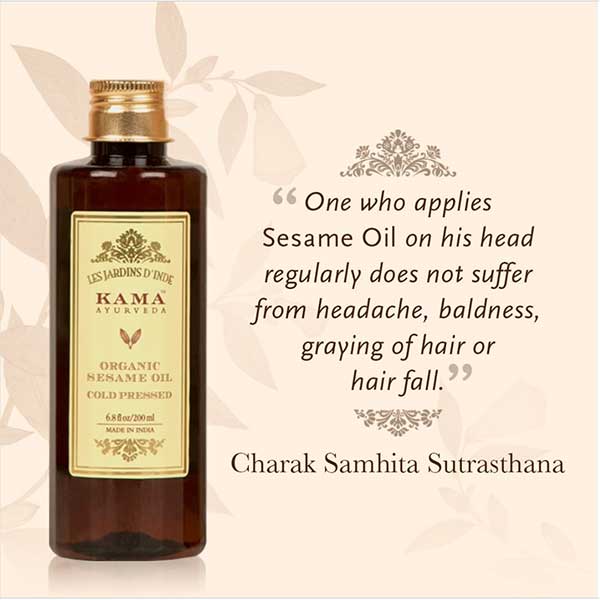
3. Neem Oil
You might have already heard that neem oil is the best for all your scalp and hair problems. Extracted from the seeds and fruits of the large evergreen Neem tree, this oil is full of antibacterial, antifungal, and anti-inflammatory properties as well as fatty acids and Vitamin E.
Neem oil prevents dandruff and hair lice, conditions and repairs damaged cuticles, reduces redness and irritation caused by eczema, and promotes hair growth. It also helps in preventing hair loss and premature greying of the hair.
You can mix neem oil with any carrier oil like Coconut oil, Jojoba oil, Almond oil, etc. And if you feel the smell is quite strong, you can also add 1 or 2 drops of any essential oil.
4. Almond Oil
Did you know almond oil has the highest content of natural Vitamin E? It is also rich in fatty acids, antioxidants, proteins and magnesium which helps in reducing hair breakage and promoting hair growth. Along with moisturizing, almond oil also seals in the moisture preventing hair loss and breakage.
This oil is the best for those who are looking for fast hair growth or those who have dry, damaged, and dull hair. You can directly use almond oil straight from the bottle and can also warm it before use.
5. Brigandi Oil
Brigandi oil is a combination of Bhringraj oil (extracted from the leaves of Bhringraj tree) and a few hair-friendly herbs like Amla, Indigo, Sesame. and Balloon Vines. This oil is an intensive hair treatment that helps in preventing hair loss, scalp irritation, dandruff, and premature greying. Brigandi oil also helps in cooling and soothing the scalp, preventing scalp infections, and conditioning the hair. You can use this oil straight from the bottle or heat it for an enhanced feeling of a therapeutic head massage. This oil is clinically proven to reduce hair fall by 94 percent.
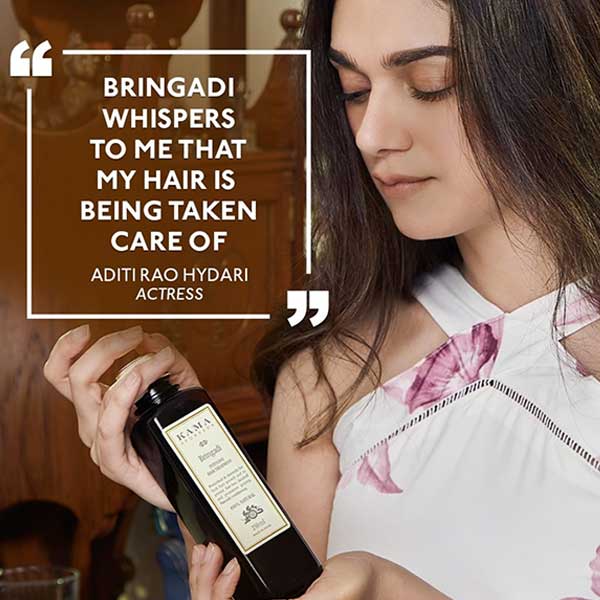
Home Remedies For Hair Fall
Some of us are willing to go that extra mile and put in the extra effort to stop hair fall. If you can make time for it, there are some effective home remedies recommended by Ayurveda that you can use to manage hair thinning and hair loss.
- Scalp Massage:
Massaging your scalp for a few minutes regularly is said to stimulate the scalp and help in improving the hair thickness. Not to mention how massaging your scalp can aid in reducing stress (one of the biggest reasons for hair fall), the advantage is two-fold!
- Oiling:
We may risk beginning to sound like a broken record at this point, but OIL YOUR HAIR! We recommend Coconut oil and Bringadi Oil in particular - they contain fatty acids that penetrate the hair shaft and reduce protein loss from the hair. Massage it into your scalp and hair and leave it for at least 1-2 hours, then wash it off. You can also use coconut oil as a leave-in conditioner if your hair does not become oily quickly after wash day, it helps improve the luster of the hair.
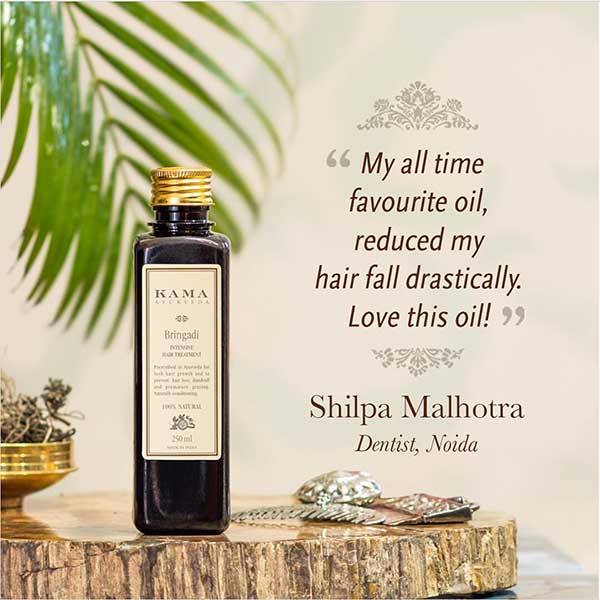
- Aloe Vera:
Aloe Vera is famous for its soothing and healing properties! We recommend putting pure aloe vera gel on your scalp and hair at least twice a week - it helps calm down an inflamed scalp and reduces dandruff. For those of us who have exceptionally oily scalps, aloe vera helps unblock the hair follicles blocked by excess oil, thus improving the issue of hair loss due to excessively oily scalp!
- Onion Juice:
Some of us despise onions for their smell but keep on reading, and they might end up becoming a favourite of yours! Onion juice has been shown to successfully treat patchy Alopecia Areata by promoting hair growth and improving circulation! It is simple to apply as well - blend a few onions and squeeze out the juice, apply the juice to your scalp and hair, leave it in for 15-20 minutes, then rinse it off and shampoo your hair as usual.
- Amla:
In Ayurveda, Amla is the most preferred ingredient when it comes to maintaining hair health. It contains heaps of essential fatty acids that help in strengthening hair follicles and providing you with the luster you ever need. Rich in vitamin C, potent iron antioxidants, gallic acid, and carotene, Amla can help you in halting premature greying and providing blood circulation around the scalp, which indeed stimulates hair growth.
All you have to do is make a paste by mixing lime juice and amla powder and apply it to your scalp and hair. You can keep it on for about an hour and then rinse it off with normal water. - Read - Using Amla For Hair - Top 10 Benefits and How To Use It?
- Shikakai:
Shikakai remembers our grandmothers as they always insist on using Shikaki for proper hair care, don’t they? It is often considered as a natural alternative to shampoo due to its fantastic hair cleansing properties.
Rich in antioxidants and Vitamin A, C, K and D, Shikakai helps in keeping hair nourished and maintaining hair health. Dry out the Shikakai pods in the sun and then grind them to make powder. Take two tablespoons of this powder and mix it with coconut oil in a jar. Massage your hair with the mixture at least twice a week. - Reetha:
Reetha, also known as soapnuts, is another ingredient that has been used in the hair care regime for centuries. It contains saponin, which is responsible for keeping your hair healthy and soft.
You can prepare Reetha shampoo by taking several pieces of soap nuts and Shikakai points and boiling them in half a liter of water. Leave the mixture overnight, then strain it and use it as a shampoo. - Fenugreek:
Fenugreek or methi seeds also help in promoting hair growth and repairing hair follicles. It is an excellent ingredient for hair loss and regrowth.
All you have to do is soak methi seeds overnight in water and grind them to a fine paste. Apply the paste all over the scalp and hair. Rinse it off with normal water after about half an hour. For best results, do this thrice a week. - Yogurt:
Of course, there is no end to the wonders yogurt can do to your overall health, especially to your hair. Rich in Vitamin B5 and Vitamin D, yogurt helps in promoting hair follicle health and preventing hair fall.
Just mix two tablespoons of yogurt with one tablespoon of honey and lemon and apply it on the scalp and hair roots taking the help of a brush. Leave it on for about half an hour and rinse off with normal water. It is recommended to use this pack once a week.
Best Foods For Healthy Hair Growth
According to Ayurveda, hair fall occurs due to an imbalance of Pitta energy in the body. For balancing Pitta, it is advised to reduce the consumption of hot, spicy, salty, and sour food items. You should also avoid tea and coffee as they activate Pitta. In addition to this, replace oily and fried food items with cooling food items such as cucumbers, leafy vegetables, coriander, cherry, pineapple, yogurt, and potatoes.
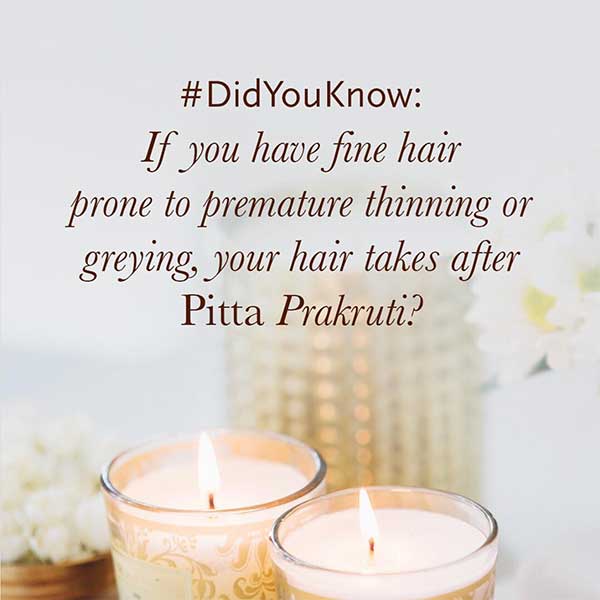
We have stated before that a balanced and nutrient-rich diet can be immensely beneficial when it comes to losing hair due to vitamin deficiencies, and that is why we are presenting to you, some of the best foods for improving hair growth :
- Spinach: Spinach is a healthy green vegetable that’s loaded with beneficial nutrients like folate and vitamins A and C, all of which may promote hair growth. Moreover, spinach is also a great plant-based source of iron, which is essential for hair growth. Iron helps red blood cells carry oxygen throughout the body to fuel your metabolism and aid growth and repair. So eat your greens, seriously!
- Eggs: Eggs are a great source of protein and biotin, which are essential for hair health and growth. Eating adequate protein is vital for hair growth because hair follicles are made mostly of protein. Biotin is necessary for the production of a hair protein called keratin, which is why biotin supplements are useful for hair growth.
- Nuts and Seeds: Nuts are packed with nutrients like vitamin E, B vitamins, zinc and essential fatty acids, not to mention how they prove to be an impressive snack at almost any given time! Like nuts, seeds (like sunflower seeds) are rich in vitamin E and other nutrients that may promote hair growth. Some seeds (such as flax and chia seeds) also contain omega-3s, which have been linked to hair growth.
- Beans: Beans are a great source of protein, iron, zinc, and biotin, which are all essential for optimal hair health. Not just that, beans are highly versatile so there are multiple ways for them to be incorporated into our diets (this one is for all the picky eaters out there!), beans are also comparatively inexpensive to purchase, meaning you will never have to miss out on them!
- Carrots: Carrots, along with other foods that contain beta-carotene (such as sweet potatoes), are something we will always recommend! The body converts beta-carotene into vitamin A, which is linked to good hair health. Vitamin A helps aid sebum production, additionally; it has other factors that may help speed up the rate of hair growth.
Tips For Hair Growth
Having laid down the basics of hair care and controlling hair loss with diet and exercise, we would like to present a few of our tips to ensure proper hair care and reduce hair loss:
- Cut Down Your Stress!
Stress can disrupt the process of hair growth and lead to premature aging! Chronic stress is one of the causes of hair loss, so we urge you to try and reduce the amount of stress you are continually putting on yourself! Try regular meditation to help yourself calm down in the mornings and evenings; it will prove to be beneficial in the long run.
- Avoid Hot Showers!
It is surprising how many people shower with hot water regularly! We understand that it can be the only respite from the cold in the winters, but hot water dehydrates the hair strands and strips the scalp of its natural oils, leading to brittle hair, which is very much in danger of breaking off easily. Try to wash your hair with lukewarm water; if nothing else, it can help immensely.
- Do Not Comb Wet Hair!
Some of us find it easier to untangle our hair right after we have washed them. The problem with this is that our hair is highly prone to breakage when it is wet, so aggressive combing or any kind of heat styling is an absolute no-no! If you are worried that you will not be able to manage your hair once they have dried, try using a very wide-toothed comb to detangle your wet hair gently. You can even use a hair serum or hair oil to help you untangle your hair knots.
- Let Your Hair Down!
You heard us - do NOT put your hair up, especially not in a tight hairstyle! Constantly pulling your hair up into a tight bun or ponytail can cause traction alopecia towards the front of your hairline, where the impact of the pull is the most! We suggest either only wearing hairstyles which allow you to wear your hair down, or if you absolutely must tie up your hair, put it into a loose-low bun. When it comes to hair accessories, avoid using headbands because they push up at your hairline. Also, switch to satin or silk scrunchies instead of using thinner hair ties. Try doing this for some time, and you will notice an improvement in your hair fall problems.
How To Prevent Hair Loss In Men
When compared to women, hair loss in men is more common. According to a study, 85 percent of men have thin hair by the time they reach their 50s. It can be caused by genetic male pattern hair loss, aging, androgenetic Alopecia, or low testosterone levels. If you are concerned about your hair loss, then this section is just for you. Read on to some fantastic tips to protect your hair from baldness.
1. Regularly Wash Your Hair With Mild Shampoo
Cleaning your scalp and hair regularly will lower the risk of infections and dandruff that leads to hair breakage and loss. So, never fail to wash your hair, and using a mild shampoo will help in not going harsh on the scalp and hair.
2. Enrich Your Diet With Protein
Protein intake will help you in promoting hair health, which indeed helps in curbing hair loss. So, make sure you eat lean meats, fish, soy, or other protein-induced foods.
3. Massage Your Scalp With Essential Oils
If you are experiencing hair loss for quite some time, then it is a must for you to massage your scalp with essential oils. Massaging your hair with a suitable essential oil helps your hair follicles in remaining active and promotes hair growth. Just add 1 or 2 drops of essential oil to any kind of carrier oil and massage your scalp for a couple of minutes every day.
Read - 12 Essential Oils For Hair That Work Wonders
4. Avoid Brushing Wet Hair
Did you know, hair is in its weakest state when it is wet? So, always avoid brushing your hair when it is wet to decrease the chances of hair loss. If you have to, then make sure you are using a wide-toothed comb. Also, avoid combing your hair too frequently as it can injure your hair and break it.
5. Keep Yourself Hydrated
Drink at least four to eight glasses of water every day to stay hydrated and promote healthy hair growth as one-quarter of your hair shaft contains water.
6. Reduce Alcoholic Beverages
Alcohol can reduce hair growth. So, if you are experiencing hair loss, then avoid or lessen your alcohol intake and see the results yourself.
7. Avoid Smoking
Smoking affects the blood circulation to the scalp, which in turn results in hair fall. So, quit smoking to maintain healthy hair.
8. Physical Activity and De-stress
Any kind of physical activity for 30 minutes every day helps in balancing your hormonal levels and reducing stress, which in turn promotes healthy hair. So make sure you either walk, run, swim, or hit the gym every day. You can even do meditation or yoga to de-stress yourself.
9. Keep Your Head Sweat Free
Men with oily hair always experience dandruff during summers as they tend to sweat a lot and increase the chances of hair fall. So, use shampoos that contain aloe vera and neem as they keep the head cool preventing dandruff.
Also, make sure you wear a scarf or bandanna over your hair while wearing a helmet because a helmet can make sweat accumulate in the pores and weaken the hair roots causing hair loss in men.
Conclusion -
With that, we arrive at the end of this article on controlling hair fall by yourself; we would like to emphasize that while these tips work well, if your hair fall issue is not solved or keeps coming back, please consult a Dermatologist or a Trichologist for treatment. Hair is an important feature to maintain in this society, and we are glad to be able to provide advice on what has worked for us and what has not when it comes to our hair. We are optimistic that this advice will provide results in your favor!
Also, if you are looking for safe and organic hair products to treat hair fall and promote hair growth, you can check out the complete hair care range by Kama Ayurveda.
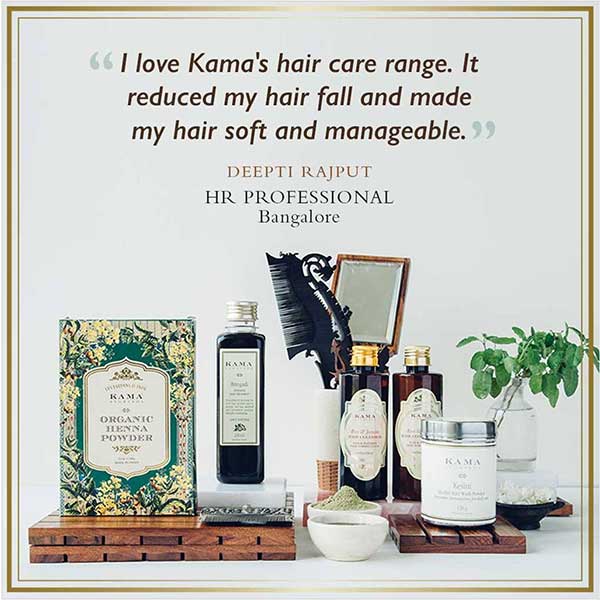
References:
- Study Demonstrating Standardized Scalp Massage Results in Increased Hair Thickness by Inducing Stretching Forces to Dermal Papilla Cells in the Subcutaneous Tissue - https://www.ncbi.nlm.nih.gov/pmc/articles/PMC4740347/
- Study Examining The Effect of Mineral Oil, Sunflower Oil, and Coconut Oil on Prevention of Hair Damage - https://pubmed.ncbi.nlm.nih.gov/12715094-effect-of-mineral-oil-sunflower-oil-and-coconut-oil-on-prevention-of-hair-damage
- Study On Onion Juice (Allium Cepa L.) As A New Topical Treatment for Alopecia Areata -https://pubmed.ncbi.nlm.nih.gov/12126069-onion-juice-allium-cepa-l-a-new-topical-treatment-for-alopecia-areata/
- Study On Naturally Occurring Hair Growth Peptide: Water-Soluble Chicken Egg Yolk Peptides Stimulate Hair Growth Through Induction of Vascular Endothelial Growth Factor Production - https://pubmed.ncbi.nlm.nih.gov/29583066-naturally-occurring-hair-growth-peptide-water-soluble-chicken-egg-yolk-peptides-stimulate-hair-growth-through-induction-of-vascular-endothelial-growth-factor-production
- Study On The Importance Of Vitamin A For Hair Growth- https://www.cidjournal.com/article/0738-081X(88)90077-6/abstract
Shreya Dalela is a certified Yoga instructor and a professional dancer trained at The Danceworx. She’s passionate about Ayurveda and holistic living with over 6 years of experience in doing extensive research and content creation in the domain.

Certified Ayurvedic Doctor (Central Council of Indian Medicine) working in Kama Ayurveda as an Assistant Training Manager.
